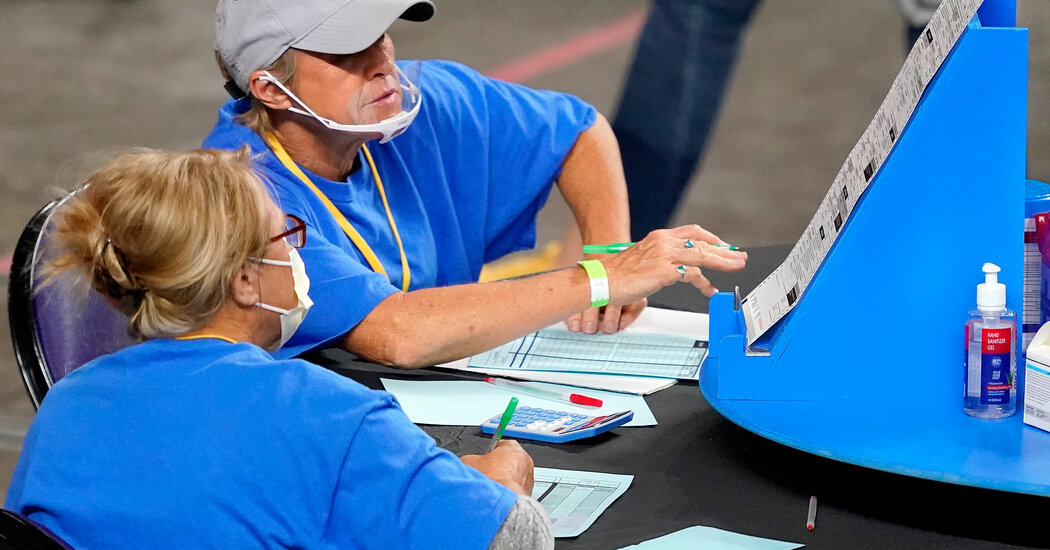
Yet another claim that precincts counted 836 more votes than were recorded ignored the fact that the records of some 3,600 voters, such as abused spouses and police officers, are not made public for security reasons. And an insinuation that 5,295 Maricopa County voters may have double-voted because residents of other counties had the same names and birth years was spot-checked by county officials and found baseless; the outsiders were in fact other people.
With similar reviews now set for Pennsylvania, Wisconsin and Texas, it is increasingly clear that Arizona’s partisan review succeeded while it failed — by amplifying baseless talking points while failing in any factual way to back up Mr. Trump’s claims of a rigged election.
The Arizona-style reviews in other states seem likely to follow the same script with the blessing of the Republican political leaders who are promoting them, said Nate Persily, a Stanford University law professor, elections expert and scholar of democracy.
“For those who are pushing the fraud narrative, the actual truth is beside the point,” he said. “The idea that the election was stolen is becoming a tribe-defining belief. It’s not about proving something at this point. It’s about showing fealty to a particular description of reality.”
Indeed, in the wake of the initial Cyber Ninjas report, Republicans in the Pennsylvania Senate only furthered their resolve to press ahead with a review of the election, one that includes a request for drivers’ license numbers and partial Social Security numbers of all seven million Pennsylvania voters.
“The historic audit in Maricopa County is complete and significant findings have been brought to light,” State Senator Doug Mastriano, a Republican and leading proponent of the election review, said in a statement last week. “If these types of issues were uncovered in Maricopa County, imagine what could be brought to light from a full forensic audit in other counties around the U.S. who processed mass amounts of mail-in ballots.”
On Friday, Robin Vos, the speaker of the Wisconsin Assembly, signed multiple subpoenas issued to the head of the elections commission in Milwaukee, the biggest city in the state and home to the largest concentration of Democratic voters, with a substantive request for documents, including communication between the city and state elections boards.




